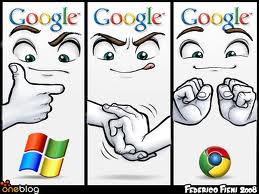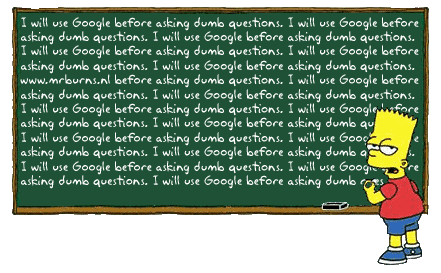 Google. The little search engine that could – has changed search, yet again.
Google. The little search engine that could – has changed search, yet again.
This month, Google made significant changes to how they deliver search results and the Terms of Service attached to each of their products. Today we’re going to take a look at what you need to know about these changes and how they affect your agency’s presence on the web.
Search + Your World
Google became popular because it was able to develop an algorithm that would deliver relevant search results to the user. Over the years, Google has improved on its formula and has become the most recognizable search engine in the world. The cyber-world has changed a bit during this time as it has become social. Today, people are using Twitter, Facebook and other social media sites to access information on topics before heading to Google. Why? They trust their already established social network. Recognizing that curated search results are popular, Google adapted it’s algorithm and introduced Search + Your World.
 This new system has 3 features:
This new system has 3 features:
- Provides Personal Results – Now when you search for “fundraising ideas” on Google, the first set of results that you see will be anything that may have been shared with you from your social network. This includes photos, blog posts, videos, ect.
- Profiles in Search Results – Google+ is Google’s social network. With the new changes, if you search for a topic such as “photography,” the Google+ profiles of photographers may show up at the top of your search.
- People and Pages – Again, directing the user to Google+, search results will now offer up profiles of people or pages related to your search topic.
A few things to keep in mind:
- Facebook and twitter results are not included in search results.
- If you have a Google account, your own media (photos, blog posts, videos, etc) will show up in your results. Also, they will show up in the results of anyone Google thinks you might know.
- You can opt-out. On the Google search results page, in the upper right hand corner, there are two new icons: a person and a globe. If you click on the globe, you will see search results without the new “+ Your World” filter.
What does this mean for your non-profit organization?
 Seeing as this change has happened only recently, it is hard to see how it is affecting organizations when it comes to where they show up in search results. However, as we all know, social media is becoming increasingly important to having new donors find you on the internet. One scenario came to mind. Say a donor, volunteer or staff member talks about their experience with your agency on their personal blog. That post could show up in a friend of the writer’s search results before your official site.
Seeing as this change has happened only recently, it is hard to see how it is affecting organizations when it comes to where they show up in search results. However, as we all know, social media is becoming increasingly important to having new donors find you on the internet. One scenario came to mind. Say a donor, volunteer or staff member talks about their experience with your agency on their personal blog. That post could show up in a friend of the writer’s search results before your official site.
The curation of search results will continue with both Twitter and Facebook trying to step into the ring. Now more than ever, it is important for your agency to have a controlled and active online presence to ensure that the information you want to show up first, does. Test it out. Google your organization and see if this new way of search has made an impact.
Google’s New Terms of Service (or One Google To Rule Them All)
 If you’re anything like me, I live my life in Google. I use Gmail, Google Calendar, Google Docs, Google+, YouTube, Zaggat, Google Maps and Android, pretty much everyday. Currently, each of these services has it’s own Terms of Service (TOS) outlining how Google will use my personal information. That will change on March 1, 2012 when all Google products will operate under one TOS. Google claims this will enhance results across their products and improve how products work together.
If you’re anything like me, I live my life in Google. I use Gmail, Google Calendar, Google Docs, Google+, YouTube, Zaggat, Google Maps and Android, pretty much everyday. Currently, each of these services has it’s own Terms of Service (TOS) outlining how Google will use my personal information. That will change on March 1, 2012 when all Google products will operate under one TOS. Google claims this will enhance results across their products and improve how products work together.
However . . .
People concerned with privacy are worried about how their information is going to be shared on the internet. For example, say a person uses Gmail for personal correspondence and is trying out stand-up comedy on YouTube under an alias. After March 1st, the person’s real name will be associated with the YouTube account – easy for anyone to find. It should be noted however, that Yahoo! and Microsoft already have similar practices.
Again, what does this mean for your non-profit agency?
 If you are currently using any Google service on behalf of your agency, it is important that you are aware of how your information will be combined. I suggest creating separate personal and professional accounts before March 1, 2012 to make sure that the separation is clear to Google.
If you are currently using any Google service on behalf of your agency, it is important that you are aware of how your information will be combined. I suggest creating separate personal and professional accounts before March 1, 2012 to make sure that the separation is clear to Google.
Also, if your organization already uses Google products, I would review what services are being used with your account. This can be done by logging into Google Dashboard.
Finally, if you decide that Google products are not the best fit for your organization, you can always export your data and delete your Google account.
What do you think about the changes Google has made? Do you see them as a help or hinderance to your organization? I’d love to discuss this with you, but you need to start the conversation using the comment box below! 😉

